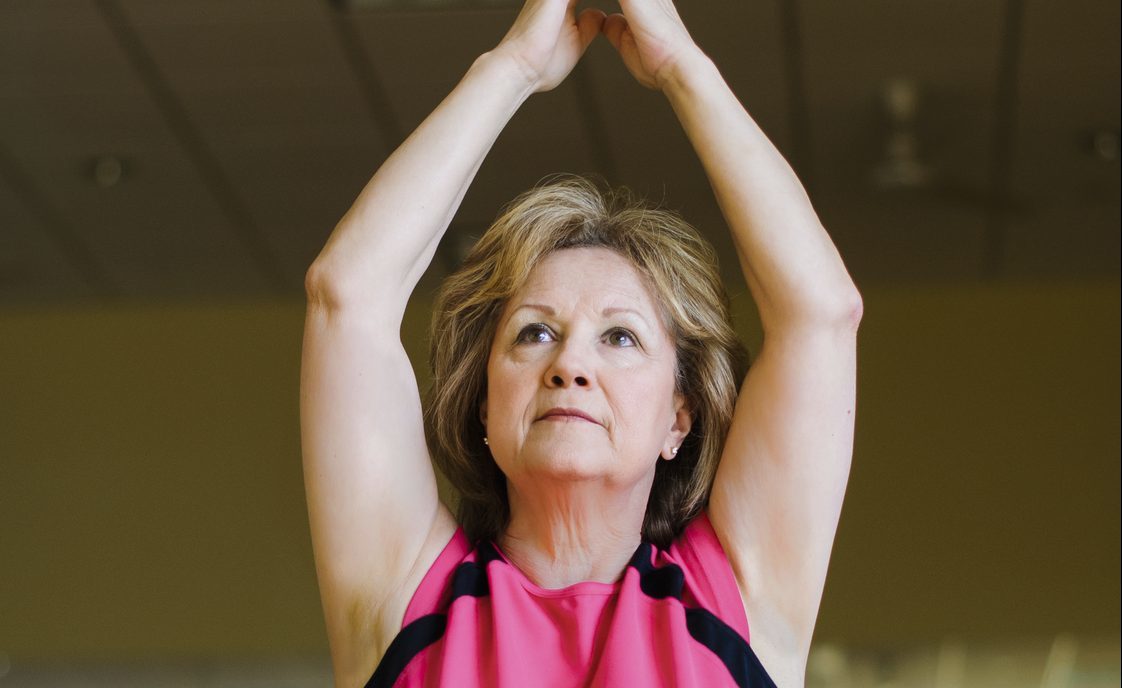
WOMEN could be storing up health problems for the future because they’re unaware that heart disease risk increases after menopause.
That’s the shock finding of a new survey conducted by national charity Heart Research UK and clothing brand Damart, as part of its #LovingHearts campaign.
It was discovered that more than half of the women questioned simply did not know that their risk of coronary heart disease increases after the menopause.
Not only that, but 82% of those surveyed were not doing the recommended minimum of 150 minutes of physical activity a week.
In fact, only 11% were exceeding it.
It was also revealed a third of women have never had their cholesterol checked, while nearly half have never had their blood pressure checked or not had it done in the last six months.
The survey set out to discover what women know about their heart health, in particular whether they are aware of key risk factors such as blood pressure and cholesterol as well as lifestyle issues, exercise and nutrition.
Over 900,000 women in the UK have coronary heart disease, and it is responsible for almost 28,000 deaths in women every year.
Dr Catherine Dickinson, Consultant Cardiologist at Leeds General Infirmary and spokesperson for Heart Research UK, says the lack of understanding among women of the effects of the menopause on their heart was a real concern.
“Women fear dying from breast cancer, but the fact is that we are almost three times more likely to die from heart disease,” says Dr Dickinson.
“This survey shows that most women do not appreciate that their risk increases after the menopause because falling hormone levels raise their risk of heart disease to the risk levels for men.”
It is thought that hormones, such as oestrogen, give some protection against coronary heart disease.
After the menopause, however, as levels of oestrogen decline, the risk of coronary heart disease increases significantly.
The survey results suggest an improvement in the delivery of important health checks to women aged 45 to 54, which the charity welcomes.
However, two in five respondents under the age of 45 had either never had their blood pressure checked or hadn’t had it checked in the past 12 months.
This could also mean that opportunities to spot precursors for heart disease, and to give women appropriate lifestyle advice and possible treatment, are missed or delayed.
Dr Dickinson added that it’s worrying how few women exercise enough, have their blood pressure checked or know their cholesterol levels — all things that are important in the prevention of heart disease.
She adds: “The good news is that by making a few simple and positive steps, we can prevent or reduce the likelihood of developing heart disease by following the guidance on exercise, knowing our blood pressure is controlled and lowering our cholesterol levels.”
Heart Research UK ambassador Sally Bee, who is a cook and healthy lifestyle adviser on the Lorraine ITV programme, says the survey is a wake-up call to women to keep a check on their heart health.
Sally, 48, who survived three heart attacks when she was in her 30s, says: “This survey has highlighted areas where women could be storing up problems for themselves for the future by their apparent lack of understanding of the risks of heart disease.
“Regularly checking things like your blood pressure and cholesterol levels, and living a healthier lifestyle are all positive actions you can take.
“In many cases, heart disease will have been preventable.”
Heart Research UK Lifestyle Officer and Registered Associate Nutritionist, Lucy Chesson was also shocked to see that so few women are taking steps to reduce their heart disease risk.
“So many of these risks can be controlled through lifestyle factors such as regular exercise and eating a heart-healthy diet,” she says.
“Our message to women is, whatever your age, it is never too late to make changes to your lifestyle to protect your heart for the future.”
For more information visit www.heartresearch.org.uk or call the helpline on 0113 234 7474.
READ MORE
Some painkillers ‘increase the risk of developing heart failure’
Sally Bee owes recovery from three heart attacks to making right choices for her wellbeing

Enjoy the convenience of having The Sunday Post delivered as a digital ePaper straight to your smartphone, tablet or computer.
Subscribe for only £5.49 a month and enjoy all the benefits of the printed paper as a digital replica.
Subscribe